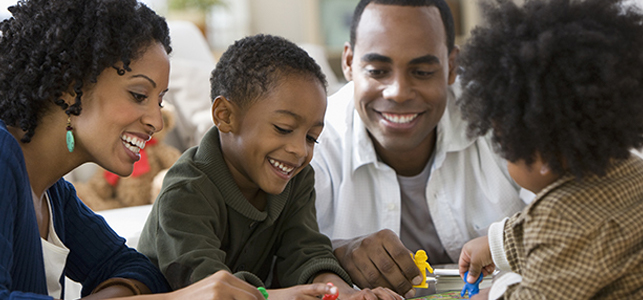Children's Emergency Department is now located in Children's Tower: 1001 E. Marshall Street.
Learn more
COVID-19 has led to plenty of uncertainty and change – for people of all ages. Though parenting is never easy, it can be particularly challenging in times like this.
“Kids and teens are looking to adults for stability and reassurance as they continue to deal with missing out on social opportunities, a different start to the school year and other situations that can take a toll on their emotional well-being…with no end in sight,” says Rachel Reynolds, program manager, Cameron K. Gallagher Mental Health Resource Center. “Many adults are trying to provide this support while facing financial pressures, social isolation and doubts of their own. Thankfully, there are some small steps that can go a long way.”
Reynolds and the team at the Mental Health Resource Center recommend the following approaches to help children feel seen in today’s uncertain times.
.jpg) Teens may do this through conversation or writing, while younger children may use pictures. Whatever your child’s preference, encouraging them to express their feelings can open the lines of communication and help you better understand their needs.
Teens may do this through conversation or writing, while younger children may use pictures. Whatever your child’s preference, encouraging them to express their feelings can open the lines of communication and help you better understand their needs.
Kids and teens may be feeling fear, sadness, disappointment or any number of emotions related to changes associated with the coronavirus. Listen and let them know you hear them. Tell them their feelings are okay. It can even be helpful to share how you’re feeling so they know they’re not alone.
Knowing what to expect, as well as what’s expected of them, can help ease children’s anxiety. Develop a schedule that works well for your family, with consistent bed times, wake times and meal times. Don’t forget to incorporate mental and physical breaks, especially if your children are learning virtually.
Maybe you can’t do all your favorite things right now, but you CAN start fun new traditions. Watch a television series together, take nightly walks or hold a regular game night. You may find that you enjoy your new routines so much that you continue them long past COVID.
Even kids as young as school-age may be able to connect and chat with friends using kid-focused apps. No matter how old your child or teen, make sure you’re familiar with the sites they’re using and clearly review safety guidelines, as well as family rules and expectations with them. Dr. Cheryl Al-Mateen offers some social media safety advice in this article.
You may find that you aren’t able to provide all the answers or support your child needs – and that’s ok! Their pediatrician can offer ideas for addressing concerns or make recommendations for behavioral health support. Our Cameron K. Gallagher Mental Health Resource Center is also available to families at no cost, and serves as a hub for encouragement and connection to therapists, psychiatrists or other appropriate services. Call us today if we can help connect you to resources in your community – (804) 828-9897.